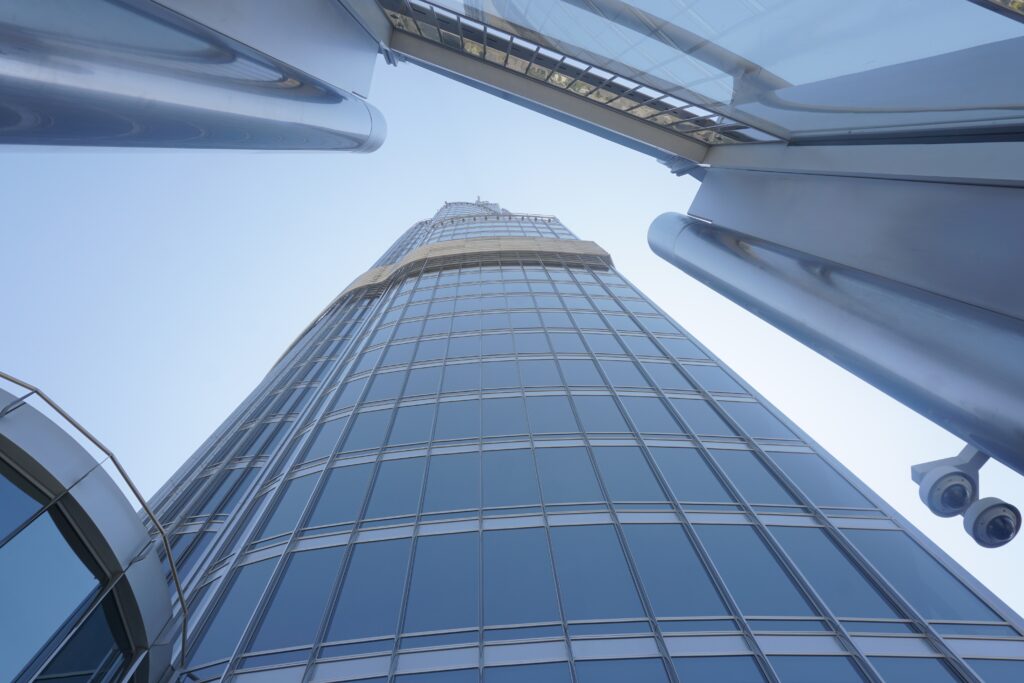- November 17, 2023
- Posted by: DBS
- Category: Real Estate

Are you interested in investing in the booming real estate market of the United Arab Emirates? Look no further than the UAE Real Estate Investment Guide. With DBS Business Setup as your trusted partner, you can navigate the complexities of business setup, company formation, and incorporation in Dubai and throughout the UAE. From registering your company in the mainland or free zones to handling pro services and obtaining government approvals, DBS business setup provides comprehensive support. Additionally, they assist with opening corporate and business bank accounts, handling VAT registration and filing, and managing UAE corporate tax requirements. Whether you’re a seasoned investor or new to the industry, this guide will ensure a seamless and successful real estate business in Dubai and the UAE.
UAE Real Estate Investment Guide
Investing in real estate can be a lucrative and rewarding venture, especially in a thriving market like the United Arab Emirates (UAE). The UAE has become a hotspot for real estate investment due to its booming economy, attractive tax incentives, and growing tourism industry. However, before diving into this exciting opportunity, there are several crucial factors to consider. This comprehensive guide will provide you with valuable insights on understanding the UAE real estate market, different types of investments, legal considerations, financing options, and tips for successful investment. Whether you are a seasoned investor or a first-timer, this guide will equip you with the knowledge needed to make informed decisions and maximize your returns.

Factors to Consider When Investing in UAE Real Estate
Investing in real estate involves various factors that can significantly impact your investment’s success. Before committing your hard-earned money, it’s essential to consider the following key factors:
-
Economic Stability: The UAE’s economic stability is a driving force behind the real estate market’s success. Analyze the country’s GDP growth, employment rates, inflation rates, and interest rates to assess the overall economic stability.
-
Market Demand: Research market trends and identify the demand for specific types of properties. Consider factors such as population growth, urbanization, expatriate demographics, and tourism potential to gauge the demand for residential, commercial, or rental properties.
-
Regulatory Environment: Familiarize yourself with the laws and regulations governing real estate investments in the UAE. Understand the foreign ownership restrictions, tax regulations, and licensing requirements to ensure compliance with legal obligations.
-
Risk Assessment: Evaluate the potential risks associated with real estate investments, such as market volatility, oversupply, and fluctuating rental rates. Assessing risks can help you make informed decisions and minimize potential losses.
-
Long-Term Objectives: Define your investment objectives, whether you aim for rental income, capital appreciation, or a mix of both. Consider your investment horizon and risk tolerance to align your real estate strategy with your financial goals.
Understanding the UAE Real Estate Market
The UAE real estate market, particularly in cities like Dubai and Abu Dhabi, has experienced exponential growth in recent years. Understanding the dynamics of this market is crucial for making informed investment decisions.
-
Market Drivers: The UAE real estate market is driven by factors such as population growth, increasing urbanization, government initiatives, tourism development, and mega events like Expo 2020. These drivers contribute to the demand for properties across various sectors.
-
Property Types: The UAE offers a diverse range of real estate investment opportunities, including residential apartments, villas, commercial buildings, offices, retail spaces, and hospitality properties. Each property type has its unique factors to consider, such as location, demand, and potential returns.
-
Locations: Different areas within the UAE offer varying investment opportunities and potential returns. The market can be segmented into prime locations, established communities, emerging areas, and upcoming developments. Conduct thorough research to determine locations that align with your investment objectives and budget.
-
Market Trends: Stay updated with the latest market trends, including property prices, rental rates, vacancy rates, supply-demand dynamics, and government policies. Utilize real estate market reports, industry publications, and expert opinions to gain insights into the current and future market conditions.

Types of Real Estate Investments in the UAE
The UAE offers several avenues for real estate investments, catering to diverse investor preferences and risk appetite. Understanding these investment options can help you choose the most suitable route for your investment portfolio.
-
Residential Properties: Investing in residential properties, such as apartments or villas, offers steady rental income and potential capital appreciation. Consider factors such as location, amenities, infrastructure, and the target market to identify lucrative residential investment opportunities.
-
Commercial Properties: Commercial real estate, including office spaces, retail outlets, and warehouses, can provide high rental yields and long-term value. Evaluate factors such as location, accessibility, lease terms, and the demand for commercial spaces in specific areas.
-
Hospitality Sector: The UAE’s booming tourism industry creates significant opportunities for investing in hotels, serviced apartments, and holiday homes. Consider popular tourist destinations, current and projected tourism growth, and the quality of hospitality infrastructure when assessing investment potential.
-
Off-Plan Properties: Off-plan properties refer to projects that are still under construction or in the pre-launch phase. These investments offer the potential for attractive pricing and substantial returns upon completion. However, it is essential to assess the developer’s track record, project viability, and the associated risks before committing to such investments.
-
Real Estate Investment Trusts (REITs): REITs provide investors with an opportunity to invest in a diversified portfolio of income-generating properties without directly owning them. REITs distribute rental income to investors as dividends, making it a passive investment option with liquidity benefits.
Benefits of Investing in UAE Real Estate
Investing in UAE real estate offers numerous benefits that make it an attractive option for both local and international investors. Consider the following advantages when contemplating real estate investments in the UAE:
-
High Returns: The UAE real estate market has historically delivered attractive returns on investment, thanks to the country’s growing economy, increasing population, and tourism industry. Rental yields can range from 5% to 10% or even higher, depending on the property type and location.
-
Tax Incentives: The UAE offers a tax-friendly environment for real estate investors. There are no personal income taxes, no capital gains taxes on property investments, and no inheritance taxes, making it an advantageous location for wealth preservation and asset growth.
-
Strong Rental Demand: The influx of expatriates and the growing population in the UAE contribute to strong rental demand. Owning a rental property can provide a steady income stream, especially in sought-after areas where demand outweighs supply.
-
Tourism Growth: The UAE is a global tourism hub, attracting millions of tourists every year. Investing in the hospitality sector or properties located in tourist hotspots can generate significant rental income during peak seasons and ensure high occupancy rates throughout the year.
-
Economic Stability: The UAE’s robust economy, sound governance, and political stability contribute to a favorable investment environment. The government’s commitment to diversifying the economy and ongoing infrastructure development projects further enhance the country’s long-term economic stability.

Legal Considerations for Real Estate Investment in the UAE
Investing in UAE real estate requires compliance with specific legal considerations, regulations, and procedures. It is crucial to be aware of the following legal aspects to ensure a smooth and lawful investment process:
-
Foreign Ownership: Non-GCC nationals can own freehold properties in designated areas known as freehold zones or through leasehold agreements in other areas. Understanding the restrictions and ownership rights based on your nationality is essential.
-
Property Registration: All real estate transactions must be registered with the UAE’s Land Department or relevant authorities. This ensures legal ownership and protection of property rights. Engaging a registered real estate agent or lawyer is recommended to navigate through the registration process.
-
Developer Verification: Before investing in off-plan properties, conduct due diligence on the developer’s reputation, track record, and project approvals from relevant authorities. Verify the Escrow Account setup for the project, ensuring your funds are securely held until completion.
-
Contractual Agreements: Contracts and agreements must be prepared by qualified professionals to protect your interests and ensure legal compliance. Whether it is a sale and purchase agreement, a lease agreement, or a joint venture agreement, seek legal counsel to review and negotiate the terms.
-
Mortgage Financing: If you require mortgage financing for your investment, understand the eligibility criteria, interest rates, loan tenure, and associated costs. Engage with reputable banks and financial institutions to secure the most suitable financing option.
Choosing the Right Location for Real Estate Investment in the UAE
Location plays a critical role in the success of a real estate investment. Several factors influence the choice of location, including demographics, market demand, infrastructure, amenities, future development plans, and proximity to key areas. Consider the following factors to make an informed decision on location:
-
Market Research: Conduct comprehensive market research to identify areas with high rental demand, potential capital appreciation, and low vacancy rates. Analyze historical trends, current market conditions, and future development plans to gauge the location’s investment potential.
-
Infrastructure and Amenities: Evaluate the quality of infrastructure, including transportation networks, roads, schools, hospitals, shopping malls, and recreational facilities. Areas with well-developed amenities tend to attract higher rental demand and offer better resale value.
-
Planned Developments: Research upcoming infrastructure projects, master-planned communities, and government initiatives. These developments often enhance the livability of an area, leading to increased demand for properties and potential appreciation in value.
-
Proximity to Key Areas: Consider the proximity to key areas such as business districts, tourist attractions, airports, and transportation hubs. Properties located in prime areas or with easy access to these areas tend to offer higher rental yields and capital appreciation.
-
Neighborhood Analysis: Understand the characteristics of the neighborhood, including safety, cleanliness, community vibes, and social amenities. A desirable neighborhood can attract better tenants and ensure the long-term desirability of your property.
How to Find Real Estate Investment Opportunities in the UAE
Finding real estate investment opportunities in the UAE requires a proactive approach and a solid understanding of the market. Here are some strategies to help you identify potential investment opportunities:
-
Engage with Real Estate Agents: Consult reputable real estate agents who specialize in the UAE market. They have valuable market knowledge, access to listings, and can guide you through the investment process.
-
Attend Property Exhibitions and Events: Property exhibitions and real estate events are excellent platforms to explore numerous investment options. These events bring together developers, agents, and industry experts, providing a comprehensive overview of available projects and deals.
-
Online Portals and Listings: Utilize various online portals and listings dedicated to the UAE real estate market. These platforms provide a wide range of property listings, allowing you to filter based on location, type, price, and other preferences.
-
Networking and Referrals: Tap into your professional network and seek referrals from friends, colleagues, or fellow investors. They may have personal experiences or insights on lucrative investment opportunities.
-
Research Off-Plan Projects: Keep a close eye on off-plan projects launched by reputed developers. These projects often offer attractive pricing and flexible payment plans, making them appealing for investors seeking potential capital appreciation upon completion.
Financing Options for Real Estate Investments in the UAE
Investing in UAE real estate often involves substantial capital, and financing options are available to facilitate your investment plans. Consider the following financing options when exploring real estate investments:
-
Mortgage Loans: Several local and international banks offer mortgage loans specifically designed for real estate investment in the UAE. These loans provide access to funds to purchase properties, with repayment options tailored to your financial situation.
-
Developer Financing: Some developers provide in-house financing options for their projects, allowing investors to pay in installments over a specified period. These financing arrangements can be convenient, especially for off-plan projects.
-
Joint Ventures: Partnering with other investors or developers through joint ventures can provide access to additional capital and expertise. Joint ventures distribute the financial risk and allow investors to pool resources for larger-scale investments.
-
Equity Release: If you own existing properties with significant equity, you can explore equity release options to access funds for new investments. Equity release allows you to unlock the value of your property without selling it outright.
-
Cash Purchases: If you have substantial cash reserves, a cash purchase can offer several advantages, including negotiating power, faster transaction processes, and potentially securing better deals.
Tips for Successful Real Estate Investment in the UAE
To ensure a successful real estate investment journey in the UAE, consider the following tips:
-
Conduct Thorough Due Diligence: Research extensively, consult professionals, and evaluate the financials, market conditions, and legal aspects before finalizing any investment decision.
-
Diversify Your Portfolio: Consider diversifying your real estate portfolio by investing in different property types, locations, and market segments. This approach helps spread risk and maximize potential returns.
-
Seek Professional Guidance: Engage reputable real estate agents, lawyers, and financial advisors who specialize in UAE real estate. Their expertise and knowledge can assist you in making informed decisions and avoiding potential pitfalls.
-
Monitor Market Trends: Stay updated with the latest market trends, regulatory changes, and infrastructure development plans. Regularly analyze market reports, attend industry seminars, and network with professionals to gain insights into potential investment opportunities.
-
Long-Term Investment Perspective: Real estate investments often yield favorable returns over the long term. Have a long-term investment perspective and focus on achieving sustainable growth rather than short-term gains.
The Future of Real Estate Investment in the UAE
The future of real estate investment in the UAE is promising, backed by the government’s commitment to economic diversification and ongoing infrastructure development. With Expo 2020 on the horizon and ambitious initiatives like Vision 2021 and UAE Centennial 2071 in place, the real estate market is expected to continue thriving.
-
Expo 2020: The upcoming Expo 2020, hosted by Dubai, is expected to drive economic growth, create job opportunities, and attract millions of visitors. This event will have a significant impact on the real estate market, especially in areas surrounding the Expo site.
-
Vision 2021: The UAE government’s Vision 2021 aims to transform the country into a knowledge-based economy, focusing on innovation, sustainability, and happiness. This vision will drive infrastructure development, enhance job opportunities, and create a favorable environment for real estate investments.
-
UAE Centennial 2071: The UAE’s ambitious Centennial 2071 plan aims to position the country as the world’s best nation by its centenary year. This long-term plan focuses on various sectors, including education, healthcare, advanced technology, and space exploration. Such initiatives will stimulate economic growth and attract global investments.
-
Sustainable Development: The UAE is committed to sustainability and green initiatives. The real estate sector will witness a shift towards sustainable construction practices, energy-efficient buildings, and eco-friendly development projects. Investments in green buildings can yield long-term returns and contribute to a more sustainable future.
In conclusion, investing in UAE real estate offers immense potential for wealth creation and capital appreciation. By understanding the local market, considering various investment options, and complying with legal requirements, you can position yourself for success in the UAE real estate market. With careful planning, diligent research, and expert guidance, your real estate investments in the UAE can pave the way for a prosperous financial future.

